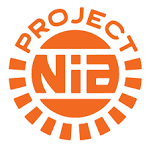
Graphic notes by Radical Roadmaps
Painting the Ocean and the Sky
with Shira HassanAre you interested in forming a crisis response team that doesn't use the police? This session (and the resource linked below) get clear about some critical terms, and ideas abolitionist organizers are using when building coordinated structures of care that are alternatives to police/carceral emergency services.
Naming who we are, why we are doing this work, and what we are creating helps us get clear, creates collective understanding of our projects, allows for boundaries, and gives us room to see ourselves, our power, and our formations so we can continue to nourish our resistance movements and build complex, viable community-led responses that do not involve the state
- What is peer-led work?
- Is it the same as mutual aid?
- What is the difference between crisis and emergency?
- Is there such a thing as a non-profit social service that can remain true to abolition?
Naming who we are, why we are doing this work, and what we are creating helps us get clear, creates collective understanding of our projects, allows for boundaries, and gives us room to see ourselves, our power, and our formations so we can continue to nourish our resistance movements and build complex, viable community-led responses that do not involve the state
FACILITATORS
Shira Hassan has been working in her own community and speaking nationally on the sex trade, harm reduction, self-injury, healing justice and transformative justice for nearly 30 years. She is currently a fellow at Interrupting Criminalization, where Shira runs The Help Desk. The Help Desk offers supportive thought partnership to individuals and groups working to interrupt crises and violence without using the police. Along with Mariame Kaba, she is the co-author of Fumbling Towards Repair: A Workbook for Community Accountability and the author of Saving Our Own Lives: A Liberatory Practice of Harm Reduction.
LINKS
Painting the Ocean and the Sky
